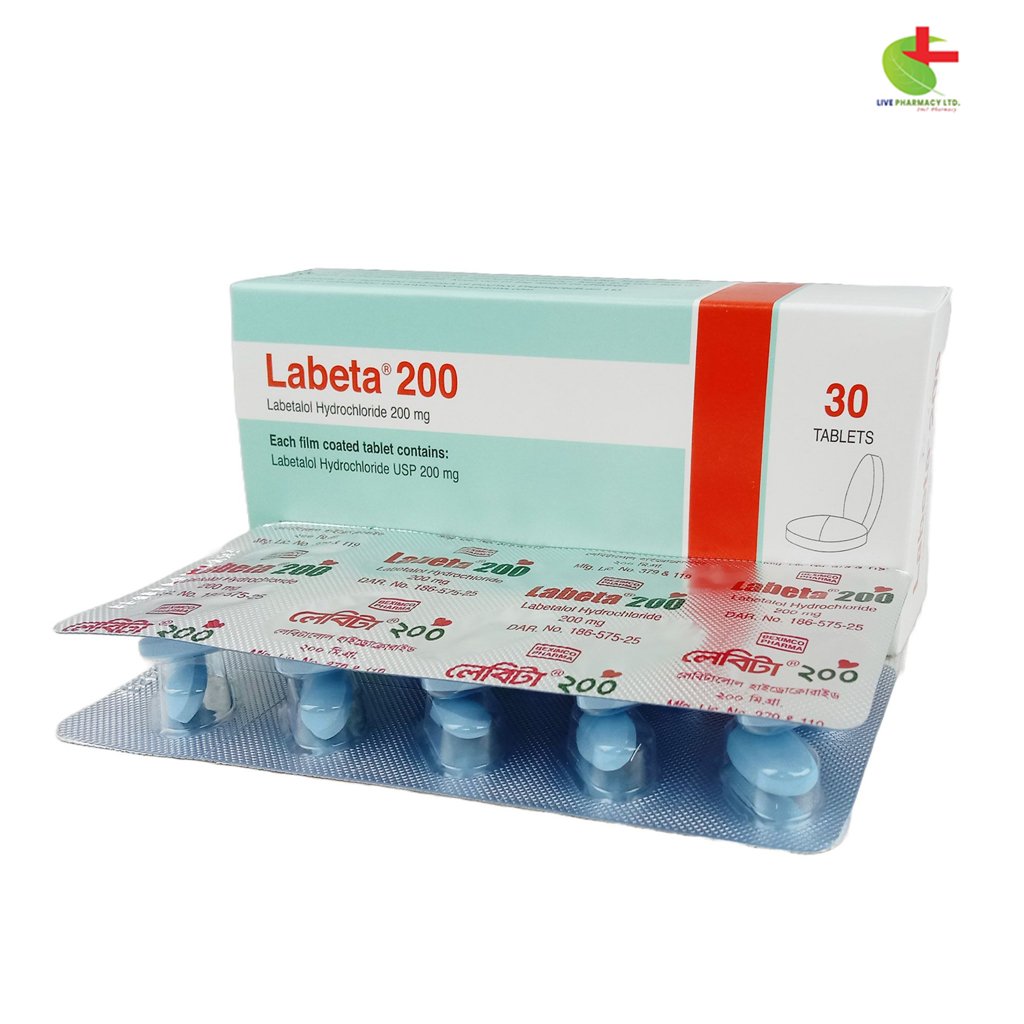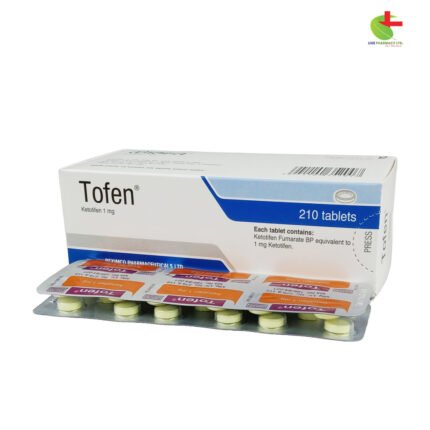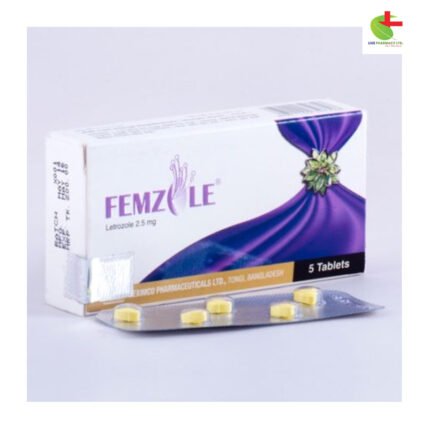Labeta 200
90.00৳ Strip
- Labeta Injection is a versatile treatment for managing hypertension, including in pregnancy, post-stroke, and following myocardial infarction.
- Its dual-action formula, with selective alpha 1-adrenergic and nonselective beta-adrenergic blocking, effectively lowers blood pressure and supports rapid relief in hypertensive crises.
- Suitable for both oral and intravenous use, Labeta helps control severe hypertension and can be used during anesthesia to achieve hypotensive effects.
- Always follow medical guidance for dosage and administration.
 Brand
Brand
|
Beximco Pharmaceuticals Ltd |
|---|---|
 Generics
Generics
|
Labetalol Hydrochloride |
 Type
Type
|
Tablet |
Indications
Labeta Injection is prescribed for:
- Hypertension: Effective for managing hypertension, including cases associated with pregnancy, stroke, angina, and acute myocardial infarction.
- Hypertensive Crisis: Provides rapid relief in critical situations.
- Anaesthesia: Suitable for hypotensive techniques during anesthesia.
Pharmacology
Labetalol is an adrenergic blocker with both selective alpha 1-adrenergic and nonselective beta-adrenergic blocking actions. This dual action effectively lowers blood pressure in patients with hypertension. After oral administration, Labetalol Hydrochloride is well-absorbed, reaching peak plasma levels within 1-2 hours. Its plasma half-life is approximately 6-8 hours, with about 55-60% of the dose excreted in the urine within 24 hours. It maintains blood pressure control without impacting renal function in hypertensive patients.
Dosage & Administration
Oral Dosage:
- Adults: Start with 100 mg twice daily, either alone or with a diuretic. Maintenance doses range from 200 to 400 mg twice daily.
- Severe Hypertension: Dosages may be increased to 1,200-2,400 mg per day. Avoid increasing by more than 200 mg twice daily.
- Elderly: Typically, 100-200 mg twice daily is sufficient.
Injection/Infusion Dosage:
- Intravenous Injection: For rapid blood pressure reduction, administer 50 mg IV over at least one minute, repeating every 5 minutes if needed. Maximum dose is 200 mg.
- Intravenous Infusion: Dilute to 1 mg/ml using fluids like 5% Dextrose or 0.9% Sodium Chloride. For specific conditions:
- Pregnancy: Start at 20 mg/hour, increasing as needed to a maximum of 160 mg/hour.
- Post-Acute Myocardial Infarction: Begin at 15 mg/hour, escalating up to 120 mg/hour.
- Post-Stroke: Administer 10-20 mg IV over 1-2 minutes, repeat or double every 10 minutes (maximum 300 mg).
- Other Causes: Infuse at 2 mg/min, with effective doses usually between 50-200 mg.
- Hypotensive Anaesthesia: Start with 10-20 mg IV; for patients contraindicated for halothane, start with 25-30 mg. Increase in 5-10 mg increments if needed.
Always follow physician’s guidance for dosage.
Interaction
Labeta may intensify the effects of halothane, and caution is advised when combined with Class I antiarrhythmics or verapamil-type calcium antagonists. Combining with NSAIDs may reduce its hypotensive effect, and tricyclic antidepressants may increase tremor incidence. Cimetidine may enhance Labeta’s bioavailability, necessitating careful oral dosing.
Contraindications
Labeta is contraindicated in patients with hypersensitivity to the medication, second or third degree heart block, uncontrolled heart failure, sick-sinus syndrome, cardiogenic shock, severe bradycardia, and bronchial asthma or other obstructive lung disorders.
Side Effects
Possible side effects include postural hypotension, fatigue, headache, rash, scalp tingling, urinary difficulties, epigastric pain, nausea, vomiting, and potential liver damage. Postural hypotension is particularly notable; avoid upright positions for up to 3 hours after IV administration.
Pregnancy & Lactation
Teratogenic studies in animals showed no evidence of fetal malformations at high doses. Labeta appears to have minimal impact on labor and delivery. It is excreted in small amounts in human milk; caution is advised for nursing mothers.
Precautions & Warnings
Monitor for rare severe liver injury, which is usually reversible. Discontinue Labeta if liver injury or jaundice occurs. Use with caution in patients with hepatic impairment or peripheral vascular disease, as symptoms may worsen.
Overdose Effects
Overdose can lead to severe hypotension, bradycardia, or bronchospasm. Manage with gastric lavage or emesis if ingested, and provide supportive care including atropine for bradycardia, digitalis for cardiac failure, vasopressors for hypotension, and epinephrine for bronchospasm.
Therapeutic Class
- Alpha-Adrenoceptor Blocking Drugs
- Beta-Adrenoceptor Blocking Drugs
Storage Conditions
Store in a cool, dry place, away from light, and out of reach of children.













Reviews
There are no reviews yet.